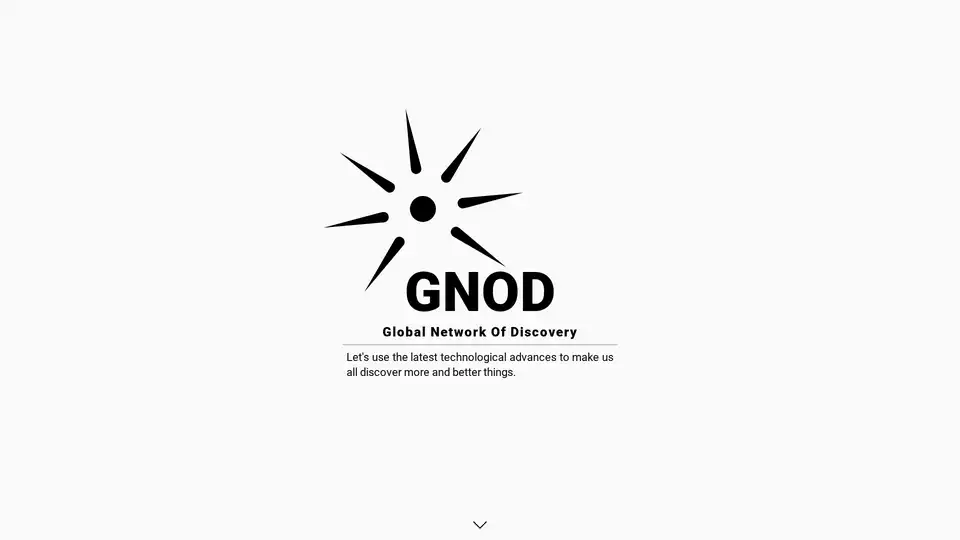
Gnod
Overview of Gnod
Gnod stands as a pioneering platform in the realm of AI-driven discovery, empowering users to explore and uncover new interests in music, art, literature, movies, and even products. Founded on the principles of artificial intelligence and innovative user interfaces, Gnod transforms the way we interact with cultural and creative content. With over 300,000 monthly users, it has become a go-to resource for those seeking personalized recommendations that feel intuitive and engaging. Whether you're a music enthusiast hunting for the next big band or an art lover browsing visual inspirations, Gnod's AI tools make discovery effortless and exciting.
What is Gnod?
Gnod, short for Global Network of Discovery, is an AI-powered ecosystem designed to leverage the latest technological advances in machine learning and recommendation algorithms. Created by Marek Gibney, whose passion for artificial intelligence and novel user interfaces sparked this project, Gnod aims to help people "discover more and better things." Unlike traditional search engines that rely on keyword matching, Gnod employs sophisticated AI models to understand user preferences and suggest content that aligns with their tastes. This includes a suite of specialized projects tailored to different domains, all accessible through a seamless web interface.
The platform's core philosophy is rooted in collaborative filtering and graph-based mapping, drawing from early AI techniques to create interconnected networks of recommendations. Users start by inputting a known interest—say, a favorite band or author—and Gnod's AI generates a web of related suggestions, visualized in an interactive format that mimics a tourist map. This approach not only democratizes discovery but also fosters serendipitous finds, encouraging users to venture into uncharted territories of creativity and entertainment.
How Does Gnod Work?
At its heart, Gnod operates on AI algorithms that analyze vast datasets of user interactions, cultural metadata, and similarity metrics to build recommendation graphs. For instance, in the music discovery tool, the AI evaluates factors like genre, artist collaborations, and listener patterns to propose bands that share sonic or stylistic affinities. The process is straightforward:
- Input Your Starting Point: Enter a known entity, such as a band name, artist, book author, or movie title.
- AI Processing: Gnod's machine learning models crunch the data in real-time, identifying clusters of similar items based on historical user behaviors and content features.
- Visual Output: Results are presented as an interactive map, where users can "travel" by clicking on nodes to explore adjacent recommendations.
- Refinement and Exploration: As you navigate, the AI refines suggestions, learning from your path to offer increasingly personalized options.
This map-like interface is a standout feature, turning abstract recommendations into a tangible, exploratory experience. Backed by robust data from user engagements, Gnod ensures suggestions are relevant and diverse, avoiding echo chambers by incorporating exploratory elements. The technology draws from foundational AI concepts like nearest-neighbor searches and neural embeddings, making it both efficient and scalable for global use.
Key Projects and Features
Gnod's strength lies in its modular projects, each fine-tuned for specific discovery needs. Here's a breakdown of the main offerings:
GNOD Music: Dive into a world of sonic exploration with two core tools. The 'Discover' feature uses Gnod's AI to recommend bands based on your favorites, perfect for expanding playlists. Meanwhile, 'The Music-Map' visualizes the music landscape as an interactive tourist map, allowing you to wander from indie rock to electronic beats seamlessly.
GNOD Products: For shoppers and innovators, the 'Product Chart' introduces a visual paradigm for product discovery. This AI tool maps consumer goods by attributes like functionality and style, helping users find alternatives or complements without sifting through endless lists.
GNOD Art: Art enthusiasts can use the 'Discover' AI to uncover paintings, sculptures, or digital works that resonate with their aesthetic preferences. It's an ideal entry point for curating personal galleries or inspiring creative projects.
GNOD Literature: Literature lovers benefit from the 'Discover' tool for author recommendations and 'The Literature-Map' for navigating the literary world like a scenic route. From classics to contemporary novels, the AI connects narratives through themes, styles, and influences.
GNOD Movies: Film buffs explore cinema via the 'Discover' AI for tailored movie suggestions and 'The Movie-Map' for a plot-twisting journey across genres. It's great for weekend binge-planning or deepening appreciation for directors and storytellers.
GNOD Search: A unique twist on search engines, this tool lets users compare results from multiple engines side-by-side, enhanced by Gnod's AI to highlight the most relevant discoveries.
These projects are interconnected, allowing cross-domain explorations—for example, discovering a movie that inspires a book recommendation. All are free to use on the Gnod website, with no login required for basic access, though supporters can contribute via Patreon for ongoing development.
Practical Uses and Real-World Value
Gnod shines in scenarios where traditional discovery feels overwhelming or uninspired. Imagine you're stuck in a music rut—Gnod's AI can introduce underground gems that match your vibe, saving hours of playlist curation. For educators or writers, the literature and movie maps provide rich resources for research, sparking ideas for essays or scripts. Marketers and product designers might leverage the Product Chart to analyze trends and brainstorm innovations.
The platform's value extends to accessibility: its simple interface caters to all ages and tech levels, while the AI's impartiality ensures diverse recommendations. In an era of algorithm-driven content feeds, Gnod promotes mindful exploration, reducing decision fatigue and enhancing user satisfaction. With 300,000 monthly visitors, it's proven its worth in fostering curiosity and cultural enrichment.
Who is Gnod For?
Gnod appeals to a broad audience:
- Creative Professionals: Artists, writers, and musicians seeking inspiration.
- Casual Explorers: Hobbyists looking to diversify hobbies in music, art, or film.
- Educators and Students: Tools for thematic research or curriculum development.
- Consumers: Anyone tired of generic e-commerce searches.
- AI Enthusiasts: Those interested in practical applications of recommendation systems.
If you're frustrated with one-size-fits-all suggestions from big tech platforms, Gnod offers a refreshing, AI-centric alternative that's both educational and entertaining.
Why Choose Gnod?
What sets Gnod apart is its commitment to user-centric AI—prioritizing discovery over data harvesting. No ads clutter the experience, and the open ethos (contact via gnod@gnod.com or Twitter @marekgibney) invites community input. As Marek Gibney notes, it's born from a genuine interest in AI's potential to enrich lives. For those ready to embark on digital journeys, Gnod is the ultimate companion.
In summary, Gnod exemplifies how AI can make discovery intuitive and joyful. Whether mapping music landscapes or charting product possibilities, it invites you to explore with confidence, uncovering hidden treasures one click at a time.
Best Alternative Tools to "Gnod"
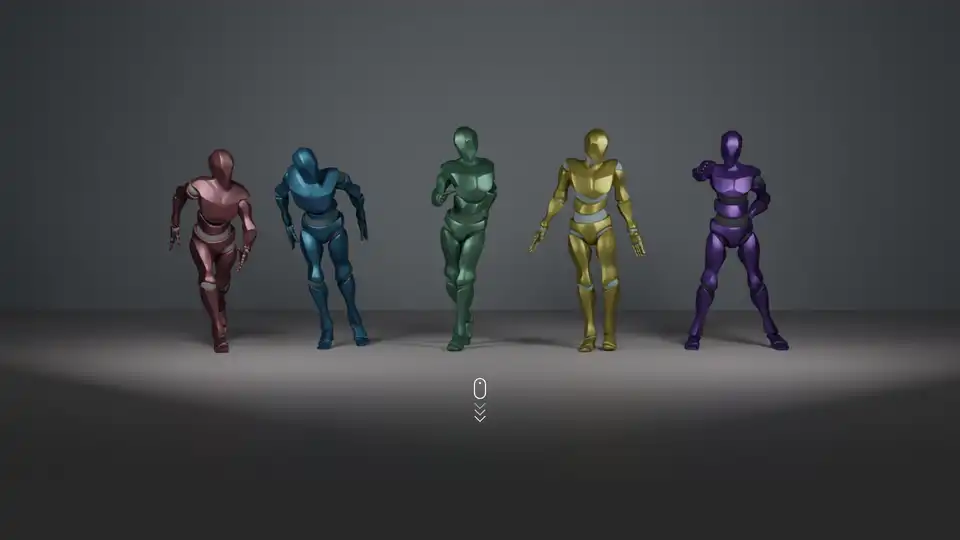
EDGE is an AI-powered tool that generates realistic and editable dances from music using a transformer-based diffusion model and Jukebox. It supports joint-wise control, motion in-betweening, and dance continuation.
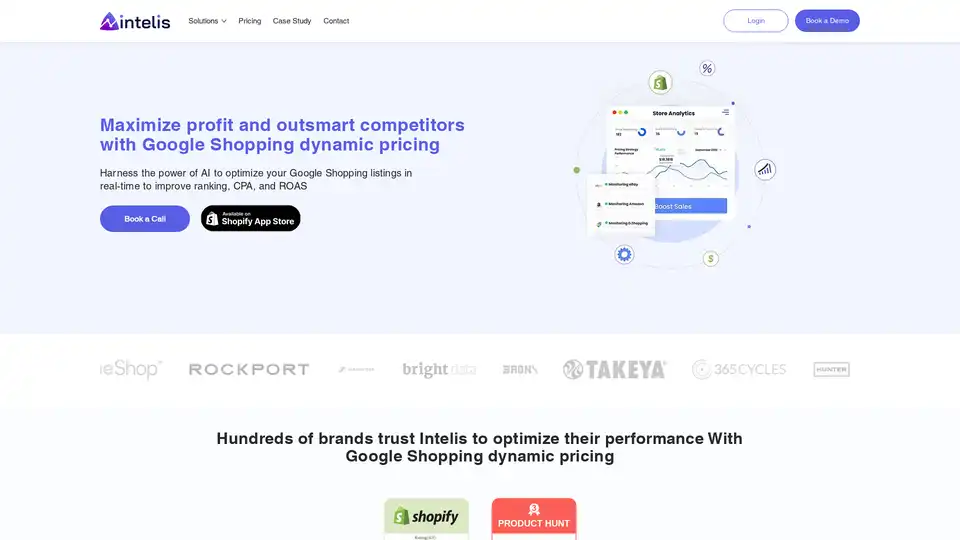
Intelis is an AI-powered dynamic pricing platform for Google Shopping. It helps retailers, brands, and agencies optimize Google Shopping campaigns in real-time by tracking competitors and automating pricing strategies.
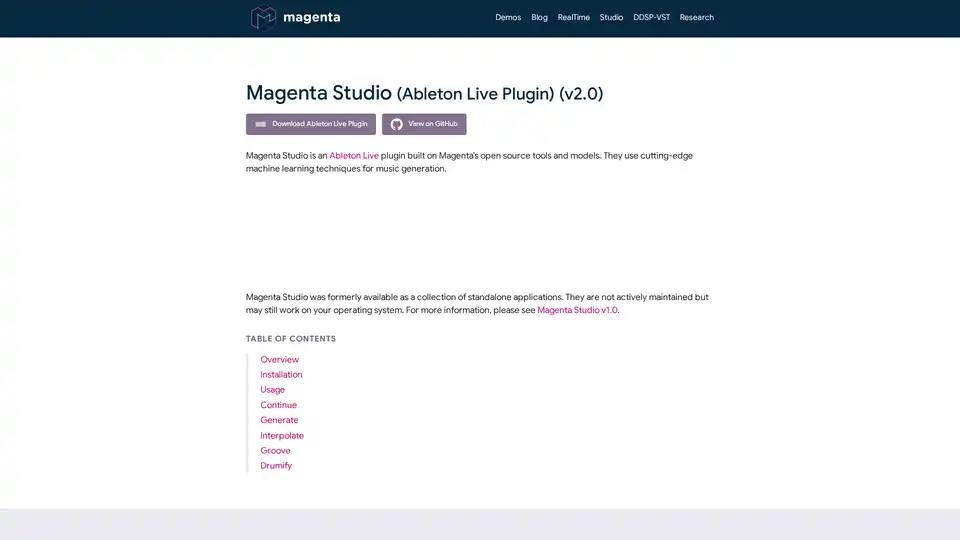
Explore Magenta Studio, a suite of AI-powered music plugins for Ableton Live. Generate, interpolate, and drumify MIDI clips using cutting-edge machine learning techniques.
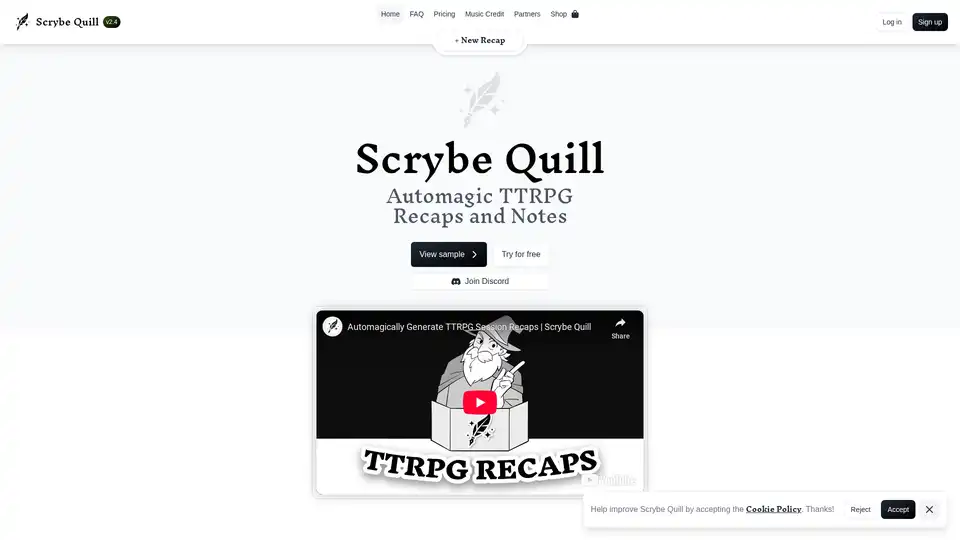
Scrybe Quill uses AI to transform TTRPG session recordings into captivating audio/video recaps, detailed outlines, quotes, and auto-updating wikis, saving GMs time on notes and boosting campaign continuity.
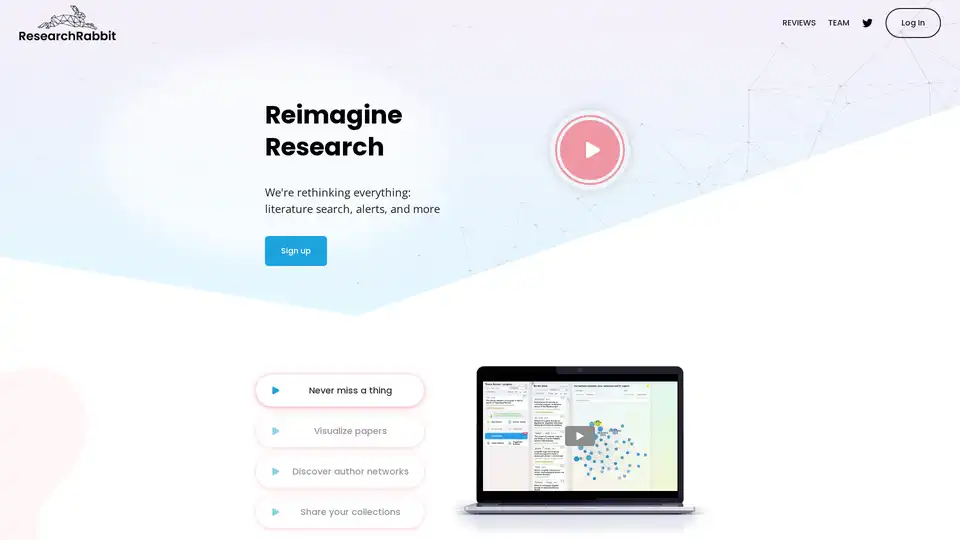
Save hours on your literature review. Use ResearchRabbit to find related papers, build citation maps, and track research trends — powered by AI.
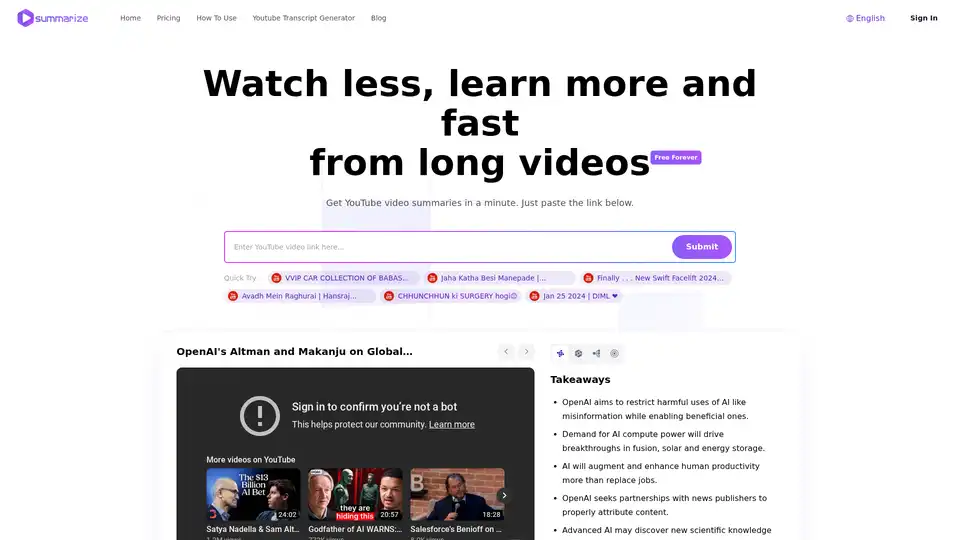
Discover quick, AI-driven summaries of YouTube videos at Summarize.ing. Get highlights, mind maps, segmented summaries in under a minute. Save time, grasp key contents effortlessly!
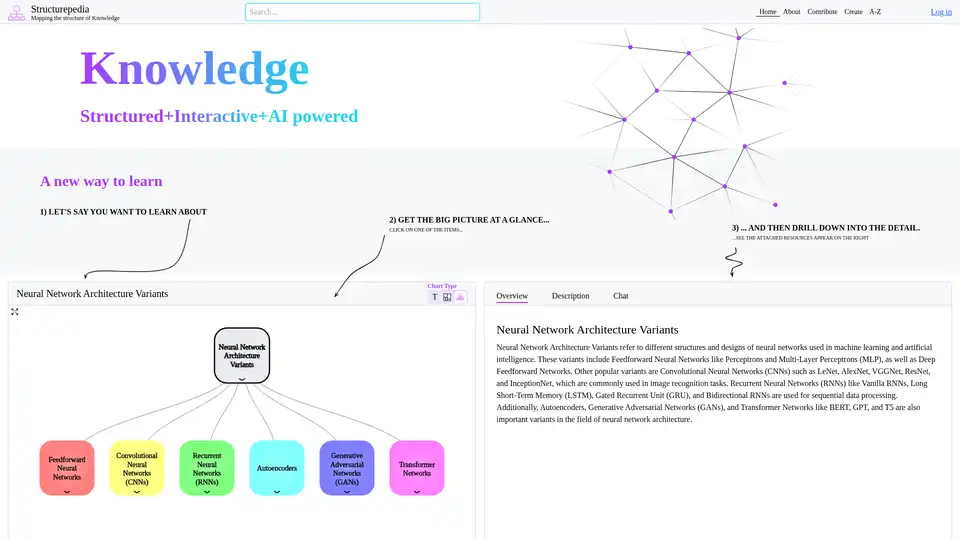
Discover Structurepedia, an AI-powered platform for visual web search and interactive knowledge trees. Explore complex topics like neural networks with structured diagrams and resources for free, enhancing learning efficiency.
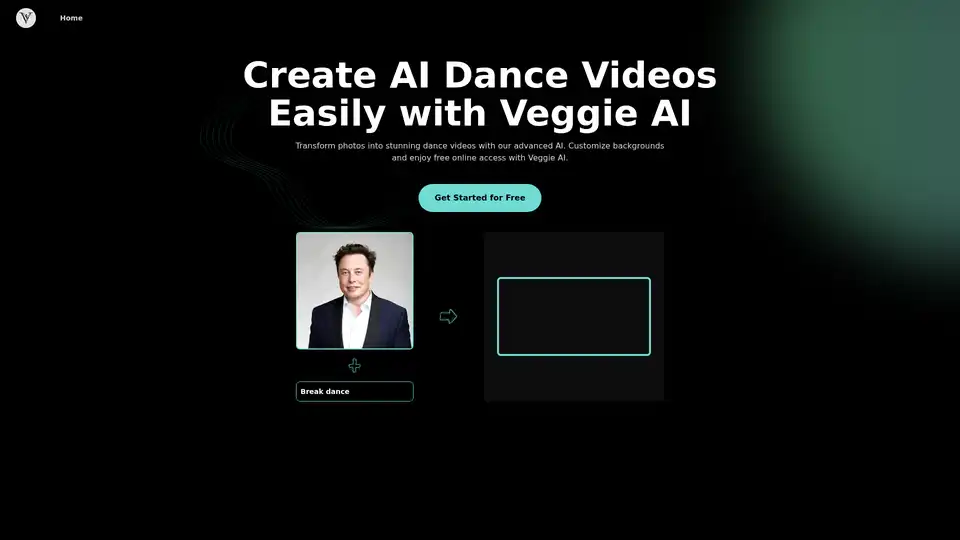
Veggie AI is a free online AI dance generator alternative to Viggle AI. Upload photos, add prompts, customize backgrounds, and create dynamic dance videos without Discord or apps for engaging content.
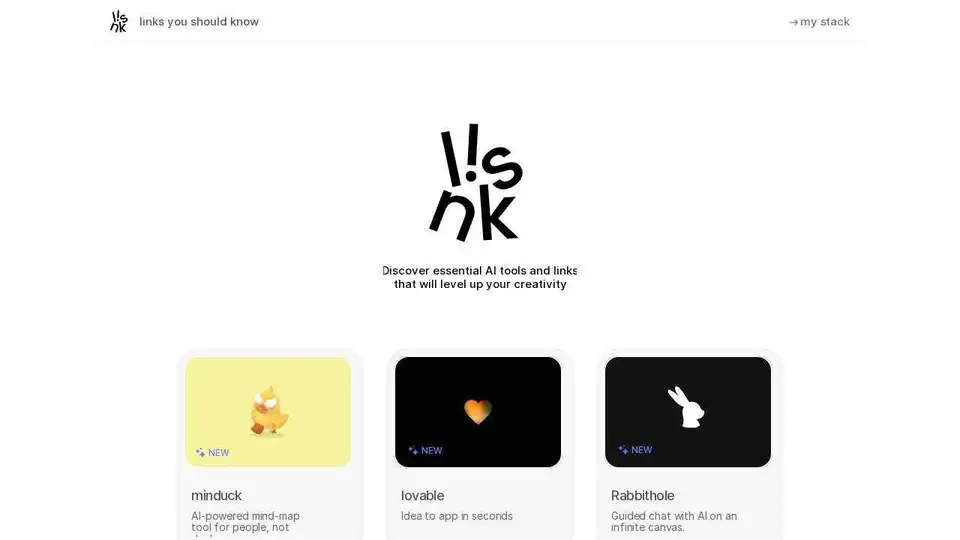
Discover essential AI tools and creative resources on Links You Should Know. Level up your creativity with AI music, video, and design inspiration.
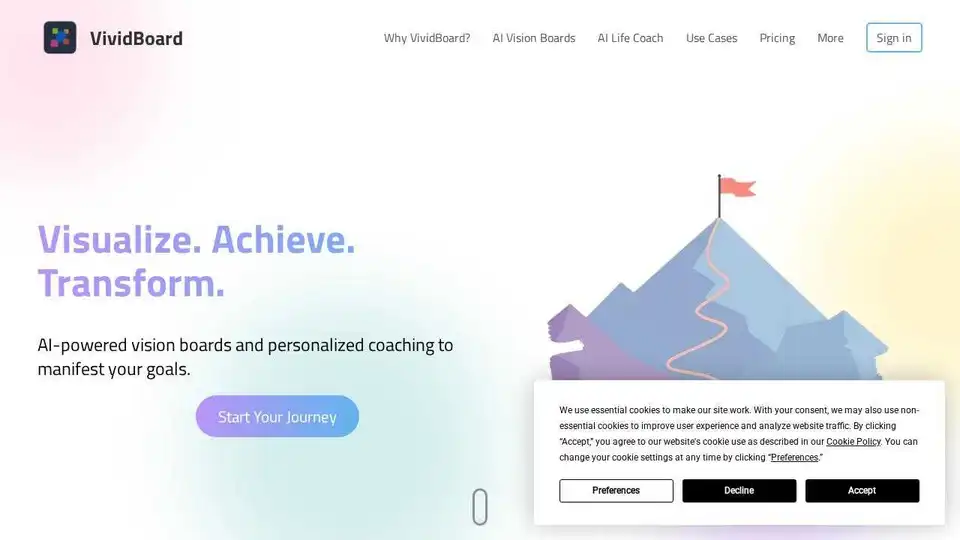
VividBoard: AI-powered vision board and life coach tool. Create your vision board online and manifest your dreams effortlessly with personalized guidance and daily affirmations.
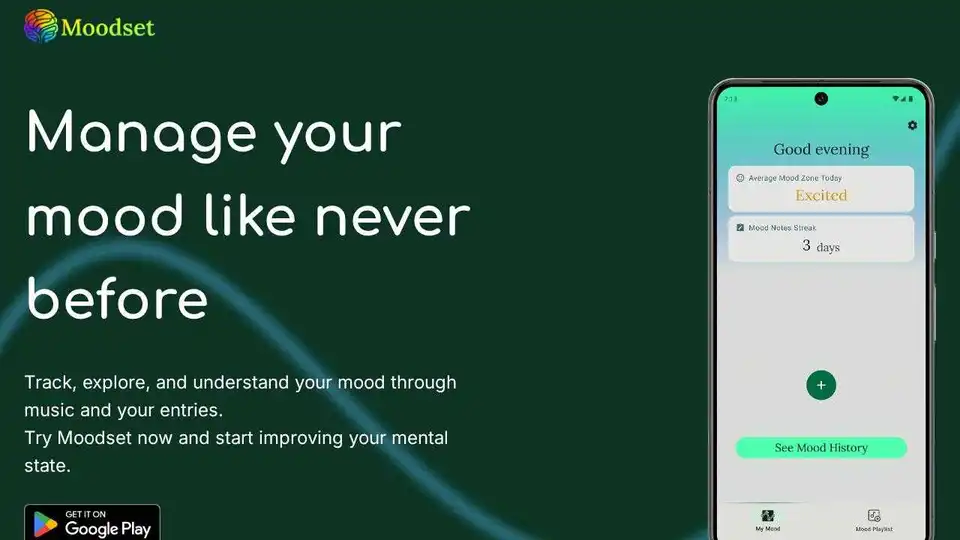
Moodset helps you track your mood with music & behavioral data, providing deeper emotional awareness. Understand your emotions precisely.
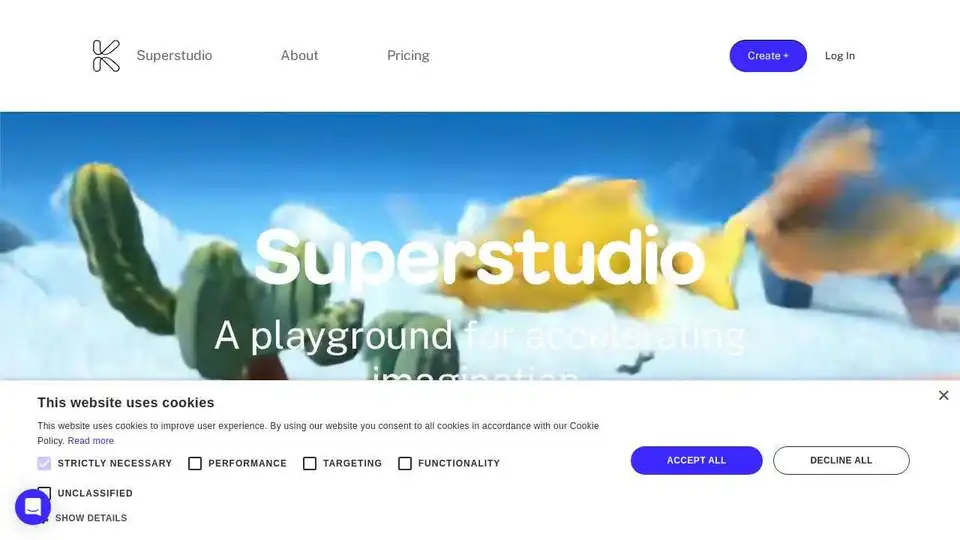
Superstudio from Kaiber: A playground for accelerating imagination with creative AI tools, image, audio, and video models.

Let's Trip AI is a free AI-powered travel planner that creates personalized and unforgettable travel itineraries tailored to your dream destinations.
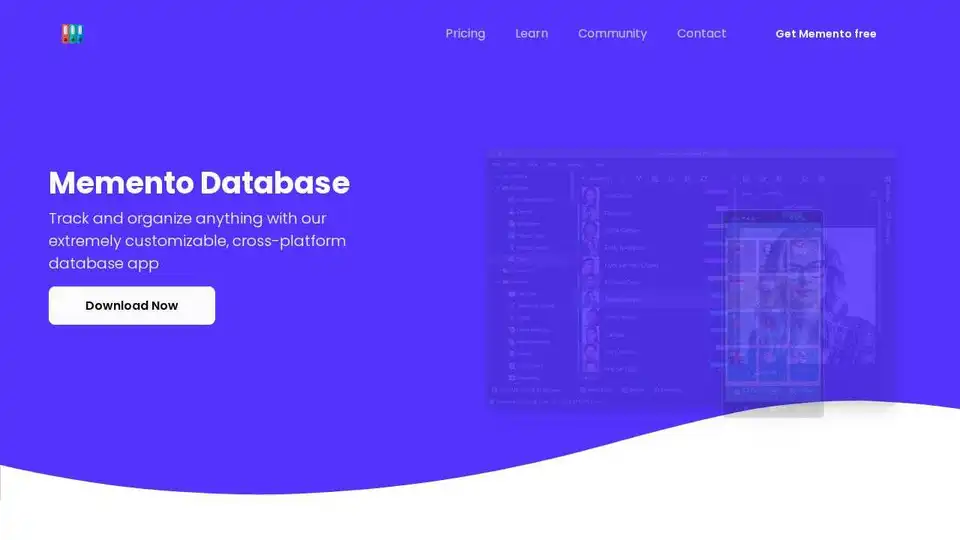
Memento Database is a powerful AI-enabled data management tool for businesses & personal use. Organize, analyze, & visualize data across platforms with ease.
